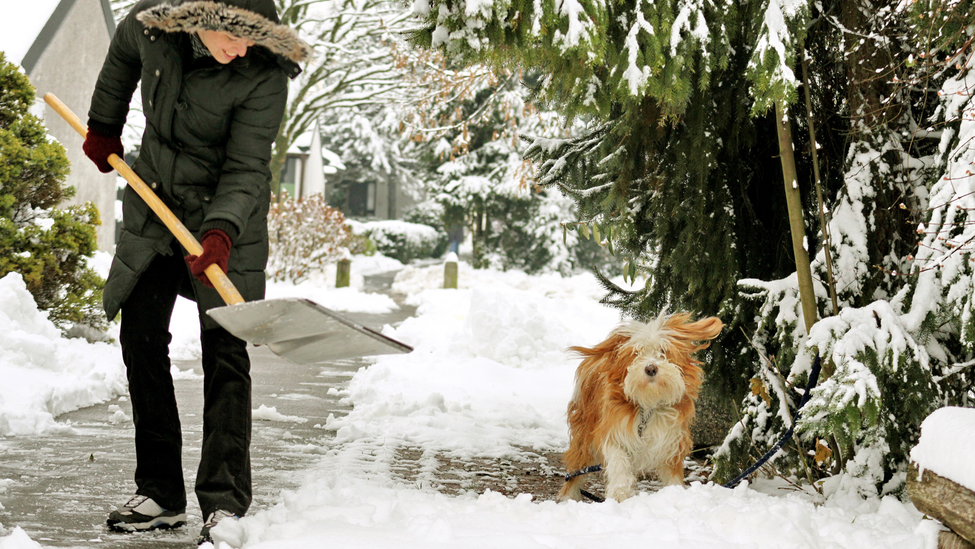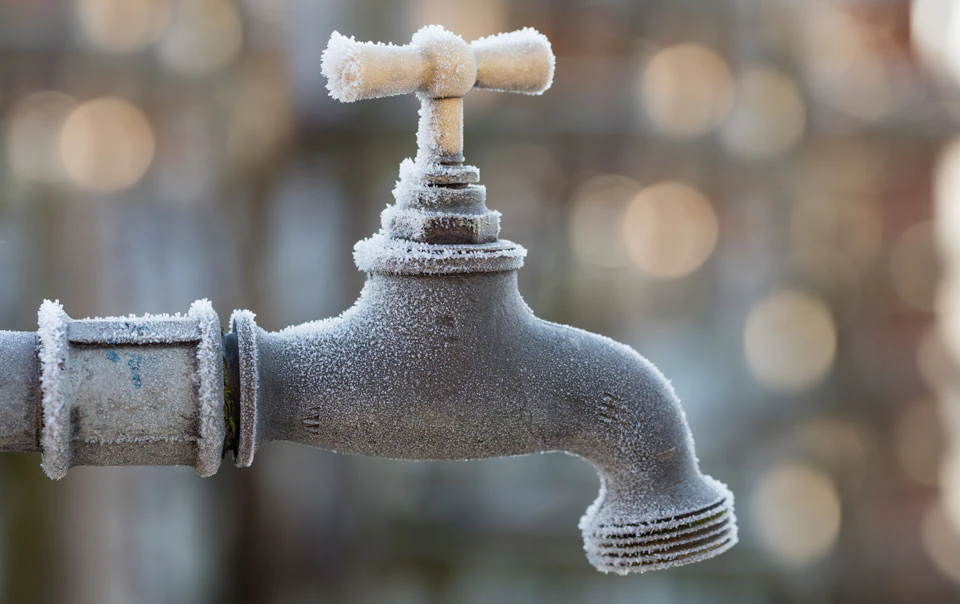How to Help Prevent Frozen Pipes


Frozen pipes can present an invisible threat – one that you might not recognize until the weather starts to warm. By then, the water damage can be significant and costly. Fortunately, keeping your home warmer, at a consistent temperature and better insulated can help protect your pipes from freezing this winter.
What Do You Do if You Have a Frozen Pipe?
If you suspect pipes in your home have been exposed to freezing temperatures, or water is not flowing through a faucet normally, follow these steps to help reduce the potential for water damage:
- Locate and close the main water shutoff valve as soon as possible and before temperatures rise above freezing.
- Open all faucets, including those outside, to drain remaining water from pipes.
- Have buckets, towels and fans available to contain, clean up and dry water leaks.
- Slowly turn water back on and inspect for leaks. If there are leaks, be prepared to turn the water off immediately.
- Also inspect pipes for damage in areas like attics and crawl spaces, where it is safe to do so.
- Never use torches or heat guns to facilitate thawing, as these can create fire hazards.
- As temperatures increase above freezing, watch and listen for signs of water leaks.
- If there is pipe damage, call a licensed plumber for repairs.
Why Is a Frozen Pipe a Concern?
When water begins to freeze, it expands. This can cause both plastic and metal pipes to burst, possibly leading to significant water damage to your home.
- Since water expands when it freezes, it puts unwanted pressure on pipes.
- As water freezes, the force exerted from the expansion can cause a pipe to burst, regardless of the strength of the material.
-
You may not know you have a burst pipe as the water has turned to ice. Once the temperature starts to warm and thawing begins, leaking and flooding can occur.
Which Pipes Are Most at Risk?
Pipes that are most exposed to the elements, including those outdoors and along the exterior walls of your home, may need extra protection during winter months. These include the following:
- Outdoor hose hookups and faucets.
- Swimming pool supply lines.
- Lawn sprinkler lines.
- Water pipes in unheated, interior locations such as basements, crawl spaces, attics, garages and kitchen and bathroom cabinets.
- Pipes running against exterior walls with little or no insulation.
How to Help Prevent Frozen Pipes
Before winter:
- Check your home for areas where water pipes are located in unheated or poorly insulated areas. Be sure to check your basement, attic, crawl space, garage and within cabinets containing plumbing. Hot and cold water pipes should both be insulated.
- Products such as pipe sleeves or UL-listed heat tape or heat cable can help insulate or heat exposed water pipes.
During winter:
- Close inside valves supplying water to outdoor faucets and hookups.
- Open outdoor faucets to allow residual water to drain; be sure to keep them open during the cold weather months, while the water supply is turned off.
- Keep garage doors closed to help protect water pipes located in the garage.
- Open the doors on cabinets where plumbing is located. This can help allow warmer air to circulate around the pipes.
- For pipes that are at risk of freezing (both hot and cold water pipes), let water drip from faucets.
- Keep the heat in your home set at a minimum of 55 degrees.



